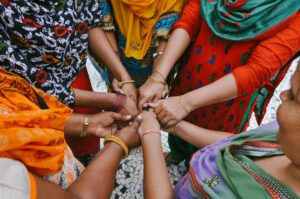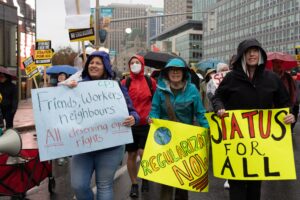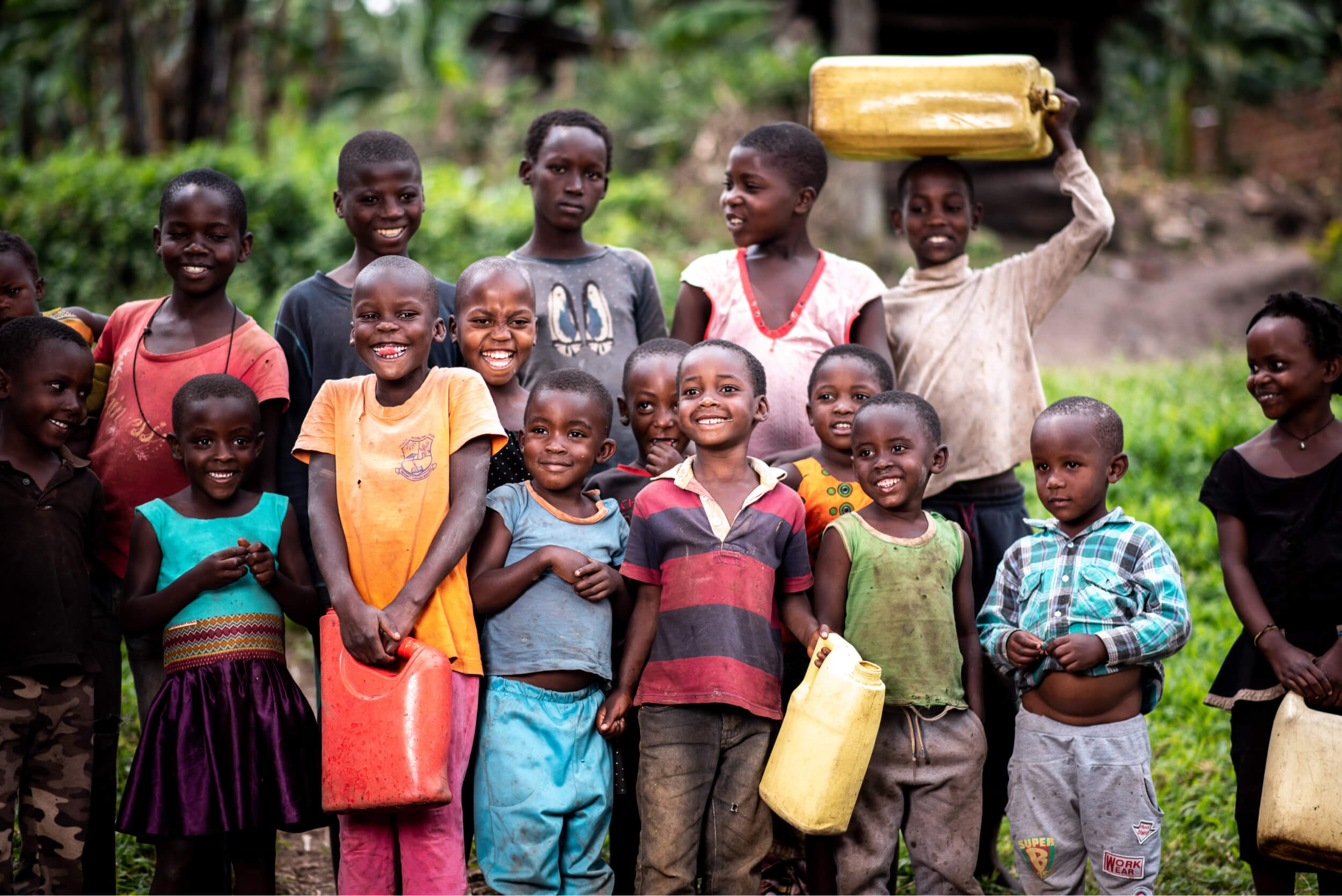Kentro Connection
Centering Agency in the Pursuit of Social Justice
By Asvini Uthayakumaran- Citizens for Public Justice

February marks an important month for advocacy around international justice. The first week of the month is designated as International Development Week (IDW) in Canada. The 20th of February is World Day of Social Justice, a day dedicated to the recognition of the need to advance social justice in both international and national policies. Both IDW and World Day of Social Justice raise the question of ‘how can we address issues like poverty, gender inequality, displacement, human rights violations and climate change in a manner that is just and equitable?’
This year for IDW, Citizens for Public Justice (CPJ), World Renew, and International Justice Mission Canada (IJM) were invited to speak at Centennial College and Redeemer University. All three organizations are distinct, pursuing justice through varied avenues including national policy advocacy, community-driven development, and strengthening of justice systems. Despite the differences in the work that each organization does, all three are united by a common thread of centering the agency of individuals and communities that are the most impacted by inequality and injustice in their work. Through this reflection, I will explore the rationale behind this approach, and situate it within development efforts at large.

Rationale
The increased focus on agency in international development and social justice discourse is articulated in the first annual United Nations Development Programme’s (UNDP) Human Development report. The 1990 report opens with an emphasis on human development – the enlarging of people’s capacity to choose – as central in the pursuit of international development. This notion that an expansion of choice-making capabilities is essential in the pursuit of development marks a discursive shift in the broader international development space. The focus on human development subverts prior assumptions that development is synonymous with a state’s economic growth. The human development approach aims to, at the very least foster “a conducive environment for people, individually and collectively, to develop their full potential and to have a reasonable chance of leading productive and creative lives in accord with their needs and interests” (UN, 1990).
One step further, and in line with the focus on human development, is the idea of agency – an acknowledgement that everyone has the right to choose free from the constraints brought on by structural inequalities and injustices. Therefore, the pursuit of social justice globally must focus on the removal of barriers to agency.
Strengthening agency can look different depending on the context. For CPJ, one of the critical steps to strengthen the agency of migrants in Canada is to implement a broad and comprehensive regularization program for Temporary Foreign Workers (TFW) and undocumented migrants. Such a program would mean that hundreds of thousands are not left in a state of limbo with their choices extremely limited by precarious immigration status. World Renew strengthens the agency of refugees through its work with Sponsorship Agreement Holder (SAH), by equipping them, and the resettled individuals and families, with the tools they need to navigate the resettlement process. IJM removes barriers to agency by empowering survivors of violence through responsive and accessible justice systems around the world, with the support and active participation of local partners.
The focus on agency does not start and end with the removal of barriers to one’s agency or solely by enlarging people’s capacity to choose. Recognizing and leveraging the agency that the communities and individuals most impacted by injustice have is also of paramount importance in the design and implementation of programs and policies intended to bring about social justice. This claim is rooted in intersectionality, and as such it is worth turning to Kimberlee Crenshaw’s work in her 1989 landmark essay, “Demarginalizing the Intersection of Race and Sex”.” Crenshaw is widely credited with coining the term ‘intersectionality’, in her essay she critiques the legal conceptualization of discrimination as being too narrow and focused on single issues. More specifically, she highlights the inability of US courts to recognize the challenges faced by Black women due to a limited legal definition of discrimination that only made space for either sex discrimination or race discrimination, but failed to consider the intersection.
Further, Crenshaw argues that this single axis framework only offers protection to the most privileged within a given group, she writes: “In race discrimination cases, discrimination tends to be viewed in terms of sex- or class-privileged Blacks; in sex discrimination cases, the focus is on race- and class-privileged women” (Crenshaw, 1989, p.3). Such an approach ultimately marginalizes those who occupy the intersections of systemic oppression. A final point that is worth mentioning here is that, for Crenshaw, this marginalization cannot be solved by merely including Black women within the existing single-axis framework. Rather, for feminist theory and anti-racist discourse to adequately address the discrimination of Black women the entire framework must be rethought (Crenshaw, 1989). Such a reconceptualization of discrimination requires a bottom-up approach that begins with addressing the problems of those who occupy the intersections of oppression. In other words, Crenshaw emphasizes the importance of centering the most marginalized in anti-discrimination policy and discourse.
In applying Crenshaw’s groundbreaking work on intersectionality to international development and social justice policy, the importance of leveraging and recognizing the agency of individuals and communities most impacted by injustice becomes clear. The impacts of climate change, poverty and human rights violations are complex and will differ based on the positionality of the communities and individuals who are at the forefront of these challenges. Development and social justice work must center lived experience and apply an intersectional approach in order to adequately account for the complexities brought on by intersecting oppressions. Bringing lived experience into international development and social justice policy can reveal blindspots in existing legislation and approaches. It can also amplify approaches that have otherwise been suppressed, and helps transcend the orthodox top-down decision making structure.
Ultimately, an approach that centers agency fundamentally changes the relationship between the “helpers” and “beneficiaries”. People who occupy spaces of vulnerability are not treated as victims but as agents of change. Their vulnerability is not seen as an inherent attribute, but rather as a consequence of circumstances that must be changed. The “helpers” become supporters committed to walk alongside with communities, instead of doing work for them. Fortunately, these conversations are increasingly more prevalent in international development spaces, and around IDW. This commitment must continue to transcend so that centering agency becomes a guiding principle of everything we do.


Collaboration is at the center
Organizations can’t fight poverty on their own. Get connected. We are stronger together.